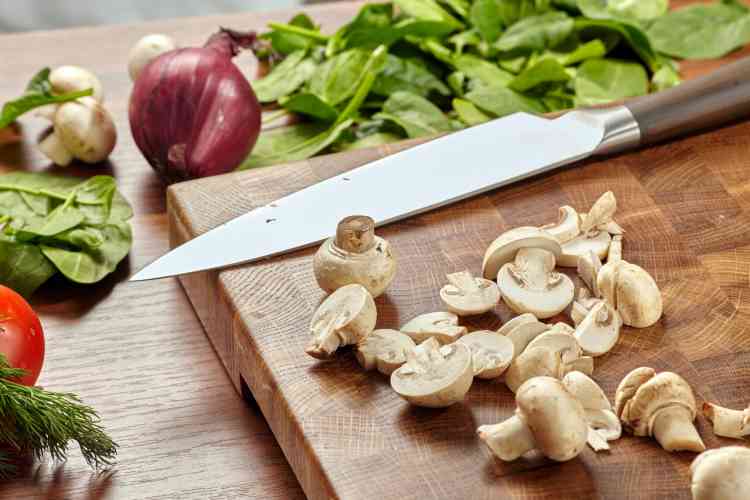In the world of culinary arts, few tools are as revered as the kitchen knife. For kitchen professionals, the knife is more than just a tool; it is an extension of their skill and precision. Among the myriad of options available, German knife innovation stands out as a beacon of quality and craftsmanship. Renowned for their durability, balance, and precision, German knives have set the benchmark in professional kitchens worldwide.
The evolution of German knives is a testament to the country's rich history in metallurgy and craftsmanship. From the forges of Solingen, often dubbed the 'City of Blades,' German knives have gained a reputation for their exceptional quality and cutting-edge innovation.

The Legacy of German Knives
The story of German knives is deeply intertwined with the history of Solingen, a city that has been synonymous with blade-making for centuries. Known for its high-quality steel and skilled craftsmen, Solingen has produced knives that are both robust and reliable. The German approach to knife-making emphasizes precision engineering, resulting in blades that offer superior performance and longevity.
One of the key aspects of German knife innovation is the meticulous attention to detail in their manufacturing process. Each knife is crafted with precision, ensuring that it meets the highest standards of quality. This dedication to excellence is what makes German knives a preferred choice for professional chefs.
Key Features of German Knives
German knives are celebrated for their distinctive features that set them apart from other kitchen knives. Some of the most notable characteristics include:
- Durability: German knives are crafted from high-carbon stainless steel, providing a perfect balance of hardness and resilience. This ensures that the blade maintains its sharpness over time, even with regular use.
- Balance: The full tang design, where the blade extends through the handle, ensures optimal balance and control, making it easier for chefs to execute precise cuts.
- Ergonomics: German knives are designed with ergonomically shaped handles, offering comfort and reducing fatigue during extended use.
- Versatility: From slicing to dicing, German knives are versatile tools that can handle a wide range of culinary tasks.
Innovations in German Knives
As the culinary landscape evolves, so too does the technology behind German knives. Manufacturers continue to push the boundaries of innovation, incorporating advanced materials and techniques to enhance performance. One such innovation is the use of laser-cut precision blades, which provide a razor-sharp edge and greater accuracy.
Another notable advancement is the integration of ergonomic designs that cater to the needs of modern chefs. These innovations ensure that German knives remain at the forefront of culinary excellence, offering unparalleled performance in professional kitchens.
Comparing German and Japanese Knives
While both German and Japanese knives are prized in the culinary world, they differ significantly in terms of design and functionality. German knives are known for their robust construction and versatility, making them ideal for a variety of tasks. In contrast, Japanese knives are often lighter and more specialized, excelling in precision tasks such as slicing fish or vegetables.
For those interested in exploring the differences further, this comprehensive comparison offers valuable insights into the unique attributes of each style.
Maintaining German Knives
To ensure that your German knife remains in peak condition, proper maintenance is essential. Regular sharpening and honing are crucial for retaining the blade's edge. Additionally, storing knives in a knife block or on a magnetic strip can prevent damage and prolong their lifespan.
For more detailed care tips, you can refer to this excellent guide on knife use and care.

FAQs
Why are German knives popular among professional chefs?
German knives are favored by chefs for their durability, balance, and versatility, making them suitable for a wide range of culinary tasks.
How often should I sharpen my German knife?
It's recommended to sharpen your German knife every few months, depending on usage, to maintain its performance.
Are German knives better than Japanese knives?
Both have their strengths; German knives are versatile and robust, while Japanese knives are lighter and excel in precision.
For more insights on choosing the right knife, check out our guide on top 5 German knife sets.


























